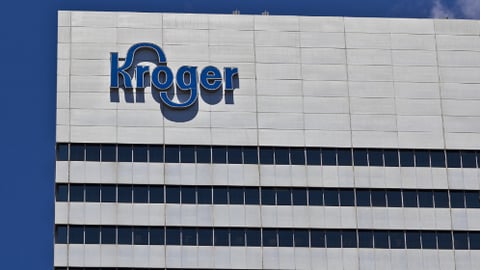Walmart Reveals New Plastic Packaging-Waste Reduction Commitments
Walmart Inc. has unveiled various plastic-waste reduction commitments involving its extensive private-brand program. The new commitments, revealed at the mega-retailer’s annual supplier forum, are expected to affect more than 30,000 SKUs.
The move builds upon existing efforts to reduce plastic waste in Walmart U.S. and Sam’s Club operations, and aims to encourage national-brand suppliers to set similar packaging goals. At the supplier forum, Walmart officials noted that the company is working with suppliers to expand efforts to improve the sustainability of its private-brand product packaging, with an emphasis on boosting recyclability and making it easier for customers to recycle.
Walmart will work with its U.S. private-brand suppliers on:
- Seeking to achieve 100 percent recyclable, reusable or industrially compostable packaging for its private-brand packaging by 2025
- Targeting at least 20 percent post-consumer recycled content in private-brand packaging by 2025
- Labeling 100 percent of food and consumable private-brand packaging with the How2Recycle label by 2022
- Eliminating the nonrecyclable packaging material PVC in general merchandise packaging by 2020
- Reducing private-brand plastic packaging when possible, optimizing the use to meet the need
During the forum, Walmart urged its national-brand suppliers to make similar packaging commitments through the company’s Project Gigaton platform. The retailer has also introduced a revised recycling playbook to provide information to companies pursuing recyclable packaging and recycled content goals.
Walmart’s goal is to achieve zero plastic waste by taking actions across its business and working with suppliers to use less plastic, recycle more and support innovations to improve plastic waste reduction systems.
Among the company’s current efforts to reach this goal are offering alternatives for single-use plastic consumable products such as straws, cutlery and disposable tabletops; recycling shrink wrap in most markets, with 151 million pounds of plastics recycled globally in 2017; providing access to in-store plastic bag and film recycling bins for customers; and encouraging suppliers to include the How2Recycle label on their packages — in 2018, more than 800 Walmart private label suppliers took part.
The Walmart Foundation also backs various circular-economy initiatives, including the U.S. Chamber of Commerce Foundation’s Beyond 34 project, a multistakeholder program that aims to raise the current 34 percent recycling rate in the United States by providing a scalable model to increase and improve recycling and recovery rates in local communities.
“As a global retailer that has set an ambitious aspirational goal to create zero waste, we fully recognize that reducing plastic waste by increasing packaging circularity is an area where Walmart can lead,” said Laura Phillips, SVP for global sustainability at the Bentonville, Ark.-based mega-retailer, adding that the commitments “[mark] another key milestone in our ongoing journey of working with our private-brand and national-brand suppliers to deliver access to high-quality, sustainable products as part of the Walmart everyday low price promise.”
By the end of 2017, Walmart had diverted from landfills 81 percent of unsold products, packaging and other waste materials in the United States.
With more than 11,300 stores under 58 banners in 27 countries and ecommerce websites, Walmart employs more than 2.2 million associates worldwide. The company is No. 1 on Progressive Grocer’s 2018 Super 50 list of the top grocers in the United States.





